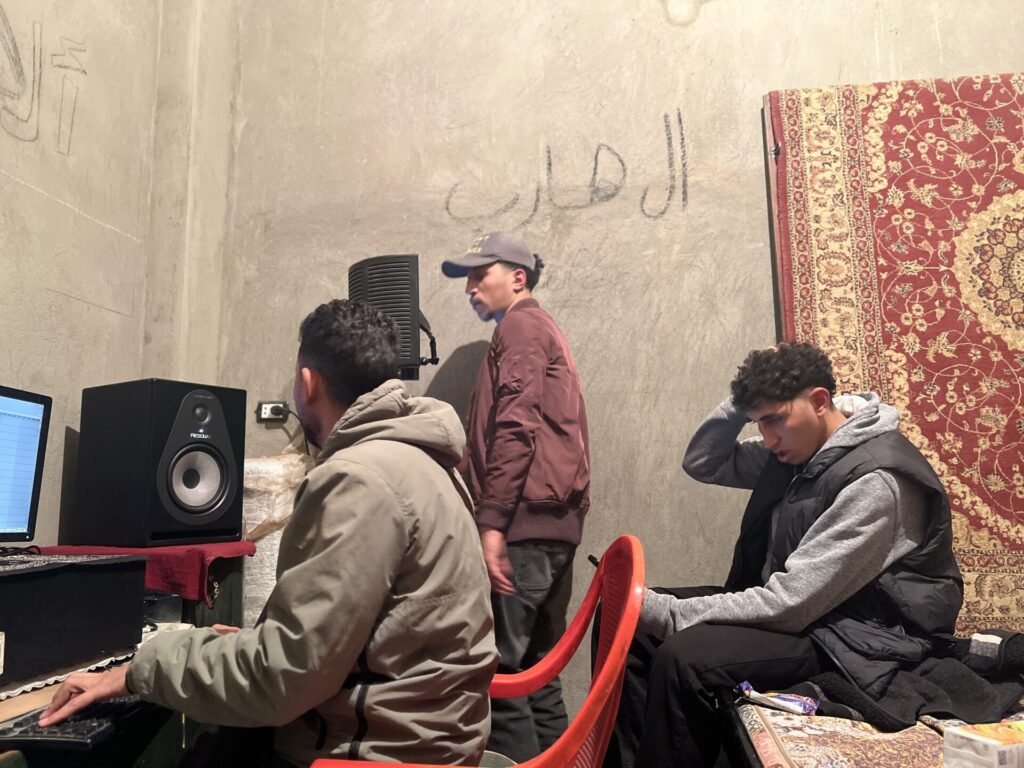To delay my not-so-slow slide into irrelevance, I’ve begun to draft my manifesto. (Obviously.) So far, this is what I’ve got:
1.) No unnecessary new buildings.
2.) No unnecessary new cars.
You with me? Pretty reasonable, right? Almost self-explanatory. Not on board yet? Take a peek at the string of empty big-box stores/seasonal Spirit Halloweens lining the choked six-lane boulevard out by my parents’ place and you’ll get it. Simple enough. But! From this point on, I’m gonna need you to buckle up, because this next one might blow your stack:
3.) No unnecessary new art.
If you could see the state of my inbox, you’d immediately understand where I’m coming from. But when does art even become necessary? And to be honest, I’m not remotely interested in being the arbiter of that necessity. Mainly, I think that’s up to artists themselves, because I think that necessity relates primarily to the making of the thing. But artists gotta know: when the making of the thing was really a necessity – a deep, personal, un-abating need – an astute viewer can see it, a seasoned listener can hear it.
Which brings us to this debut album right here: rhlt jdi by Elkotsh. This hard-charging, bass-bombing set of squirrelly, footwork-damaged, mostly instrumental, mutoid mahraganat – aka electro-shaabi – is positively electric with the necessity of creation.
To hear the label spin it, rhlt jdi is the product of a lifetime on the sidelines of shaabi: eating, sleeping, steeping, simmering in shaabi. Like James Murphy’s spiralling name-checker, Elkotsh was there – as the genre blossomed in recent decades, as it went electro – longing to make his mark on the sound but prevented from doing so by one thing or another, finally stepping away from it altogether for a decade due to familial obligations.
But hold on, I’m getting ahead of myself. Let’s rewind a bit for the people in the back who arrived a little late. What is shaabi that it would inspire such devotion? As a genre, it’s not that old, dating back to 1920s Cairo at the earliest, unfurling from rural baladi folk music and its related rhythms. Shaabi’s syncopated maqsoom beats and stirring maqam melodies were commonly played out by ensembles featuring the tabla, riq, oud, nai, and kawala (sometimes with western instruments like the violin, sax, and trumpet). Things like the accordion, electric keyboard, and synths would come later.
Shaabi is wedding music, party music. But it’s more than that, too. It’s ubiquitous urban music, porous and amorphous, mutable music. With roots in improvisational vocal traditions, it’s political and funny and saucy – a spiritual cousin to hip hop. And like hip-hop, it encompasses more than music. It’s a culture in its own right. In the aughts, electro-shaabi emerged, incorporating elements of globally popular genres like hip hop, grime, and reggaeton, further pushing the music forward. Literally meaning ‘of the people,’ and still, somehow, belonging to the people, how could shaabi not inspire a certain steadfastness?
Back to the near present. Elkotsh emerges from his bunker-like studio, bleary-eyed and exhausted, clutching a hard drive. It’s all on there after a decade away from the scene, a lifetime of ideas distilled into nine tracks, refined down to thirty minutes. The corner of his mouth twitches into a smile. He’s done it! Striking a triumphant pose, he thrusts the hard drive into the air like a mahraganat Colossus of Rhodes, bridging the gulf between shaabi’s past and a global shaabi future. Well, OK, truth be told, I made the last few sentences up. But listening to the sure-footed confidence on display throughout rhlt jdi, it should be true. It sounds true.
Elkotsh, it turns out, is a something of a mystery man, with (at the time of my writing) no discernable internet presence to speak of. I mean, they even blurred his face out on the album cover. But we do have the presser. We know that as a kid, he took the mic at weddings. We know that prior to his decade away, Elkotsh and a buddy sat in on studio sessions, later teaching themselves production tech in private. We know, based on rhlt jdi, that all the woodshedding paid off. And really, do we need to know more?
After a few seconds of quiet, ‘Mwlid Elgorn’ bursts into life, all polyrhythmic build and writhing, frenetic melodies. It’s followed by ‘150 Leila’, where charismatic, conversant blasts of instrumentation more than fill any perceived void left by rhlt jdi’s overall lack of vox. Later, during ‘Al’aw’, Elkotsh unleashes an ecstatic succession of midi-fied, pitch-shifted WOO!s for about 45 seconds, seeming to revel in the bonkers intensity. By the end, it feels like a central thesis.
By the time album highlight and closer ‘Zikr’ – with its heavy, loping beat and assault-rifle fills – comes to an end, it’s abundantly clear that Elkotsh’s is an especially outward-looking electro-shaabi. It’s easy enough to draw a dotted line from his work to the break mayhem of 3Phaz or fractured beat work of ZULI, then abroad to Piezo’s dance abstractions or DJ Plead’s endless trills or even Basic Rhythm’s skeleton grime. Earlier, the thing I said about Elkotsh being a mahraganat Colossus of Rhodes? I wasn’t being entirely facetious.
Lean in, and I’ll let you in on a little secret: As presented, point number three in my manifesto is a bit half-baked. I mentioned the perceptible necessity of a thing’s creation – of the artist’s need to create it – but I didn’t say anything about quality. Just because an artist needed to make something doesn’t make it worth disseminating. It doesn’t make it good. But here’s another little secret: Almost everything in my inbox is at least good. Almost all of it, unless you’ve got an aversion to one genre or another, is perfectly listenable. Just fine. That palpable feeling of that particular need, though? That can be the difference between a perfectly listenable, workmanlike record and a record you need to hear. Under the right circumstances, the need is transferable.
Even if rhlt jdi didn’t sound like someone fully realising that nebulous thing they could always see or hear somewhere in their head, it would still be worthwhile. Even if it didn’t sound like scratching an itch you’ve had for your entire life, it would almost certainly be solid. But as it stands, Elkotsh’s debut LP sounds like a lifetime’s worth of dammed creativity bursting from your speakers. As it stands, you need to hear it.




